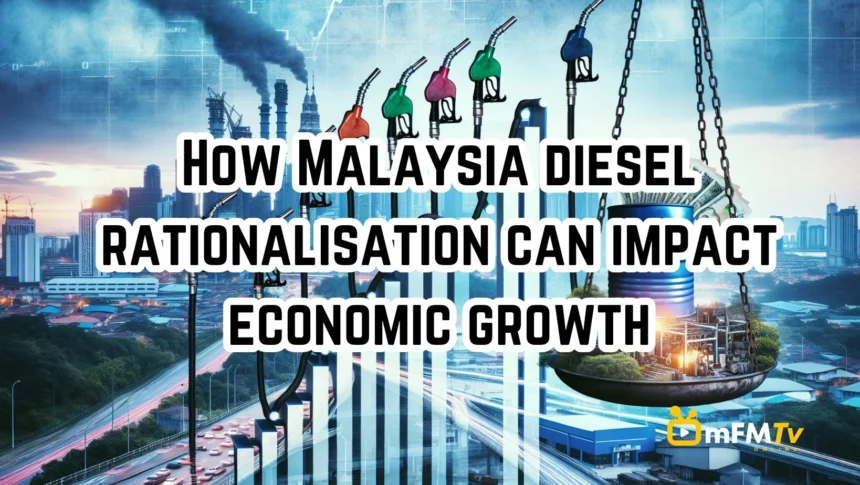The diesel rationalization policy in Malaysia can have a significant impact on economic growth. Here are some ways in which the policy could affect the economy:
- Cost-saving for businesses: Rationalizing diesel subsidies can lead to cost savings for the government, allowing them to reallocate to more productive areas such as infrastructure development and social programs. This can improve the overall efficiency of resource allocation in the economy.
- Reduction of fiscal deficit: By reducing fuel subsidies, the government can lower its fiscal deficit, which can have a positive on investor confidence and credit ratings. A lower deficit can also free up resources for other public investments that can stimulate economic growth.
- Encouragement of energy efficiency: Rationalizing diesel subsidies can encourage businesses and individuals to adopt more energy-efficient practices and technologies. This can lead to long-term cost savings, reduce carbon emissions, and contribute to sustainable economic growth.
- Impact on inflation: Changes in diesel prices can have an impact on the overall price level in the economy, affecting inflation rates. If diesel prices are increased as part of the rationalization process, it could lead to higher transportation costs, which can trickle down to other sectors and contribute to inflationary pressures.
- Effect on transportation sector: The transportation sector is heavily reliant on diesel fuel for vehicles and logistics operations. Any changes in diesel prices can have a direct impact on operating costs for businesses in this sector, which can affect pricing, profitability, and overall economic activity.
- Investment in alternative energy sources: Rationalizing diesel subsidies can incentivize investment in alternative energy sources such as renewable energy and electric vehicles. This can create new opportunities for businesses in the green energy sector and contribute to diversifying the energy mix in Malaysia.
Overall, the diesel rationalization policy in Malaysia can have both short-term and long-term implications for economic growth, depending on how effectively it is implemented and how stakeholders adapt to the changes. It is important for policymakers to consider the broader economic impacts and provide support measures to mitigate any negative effects on vulnerable groups or sectors.




